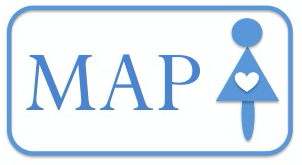We would like to talk to mums-to-be and new mums about their feelings of anxiety during pregnancy and after the birth of their baby, as part of a joint study to help understand how to identify women at risk.
Problematic symptoms of anxiety affect around 15% of women in pregnancy and after birth. Most people will feel anxious in a situation that seems threatening or difficult, but this anxiety usually passes when the situation changes.
However, if you are feeling anxious frequently, or for no obvious reason, assessment and/or treatment from a healthcare professional might be necessary. Anxiety during pregnancy increases the risk of postnatal depression and can have negative effects on children’s development.
Early identification and support of women during routine maternity appointments could prevent anxiety becoming a problem. However, some women experiencing anxiety disorders in pregnancy and after birth go unrecognised and consequently do not receive any support or treatment.

In a new study called Methods of Assessing Perinatal anxiety (MAP), researchers from City, University of London and the University of Stirling are working with the NCT and Maternal Mental Health Scotland Change Agents. We would like to understand which questions work best to identify anxiety in pregnancy and soon after having a baby.
To do this, we would like to talk to women who are pregnant or who have had a baby within the last 6 weeks, who have and who have not experienced anxiety. We will ask for your views about some questionnaires and have a discussion about identifying mental health problems.
We would like to hear from mums-to-be and new mums in south east England or central Scotland.
During pregnancy and after having a baby, women are often asked how they are feeling. They may also be asked to fill in questionnaires about this by their midwife or health visitor. We would like to know how useful these questionnaires are, and how you feel when you fill them in. This will help make sure that other pregnant women are given the best questionnaires for them.
If you would like to help us, we will ask you to fill in a questionnaire. We would also like to talk to you about what you think of the questionnaire. This could take up to an hour and a half. We could meet somewhere that is easy for you to get to. Or we could talk on the phone.

This project is funded by the National Institute for Health Research (NIHR), HS&DR Programme (17/105/16). The views expressed are those of the authors and not necessarily those of the NIHR or the Department of Health and Social Care.
If you would like to help with the MAP project, please email map@city.ac.uk and we will be happy to answer any questions and send over further information.